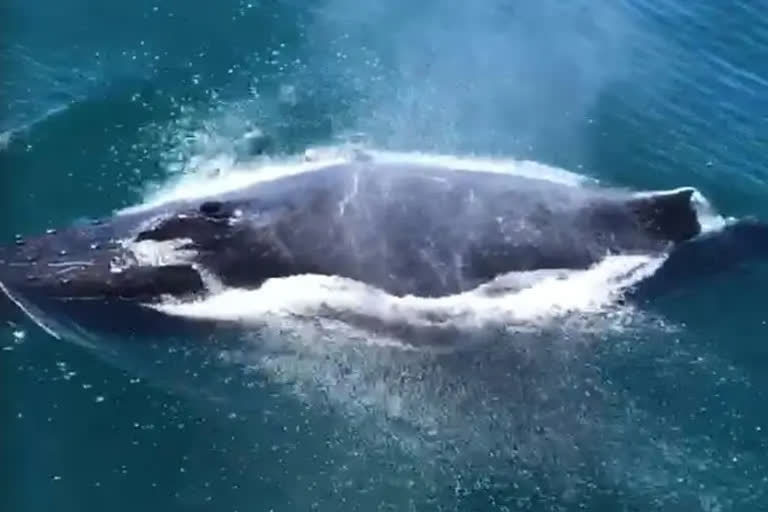Athens: Greenpeace on Wednesday renewed calls against proposed deep-sea oil and gas exploration off southwest Greece, warning of “unbearable” consequences to endangered Mediterranean whales and dolphins.
Greenpeace Greece official Kostis Grimanis said the project should be scrapped before “it starts to wreck the Mediterranean.”
The appeal came as the environmental group published new research on sea mammal populations in parts of the miles-deep Hellenic Trench, including areas that would be affected by prospecting.
The three-week summer project, in cooperation with the Athens-based Pelagos Cetacean Research Institute, detected 35 endangered sperm whales and dozens of dolphins — some threatened — in depths of up to 4,200 metres.
Greenpeace said sound-sensitive cetaceans — whales and dolphins — would be at risk from the deafening sonic blasts used in undersea prospecting.
Greek officials counter that strict environmental safeguards will be observed.
In 2019, Greece granted exploration rights for two blocks of seabed south and southwest of the island of Crete to a consortium of energy companies TotalEnergies and ExxonMobil with Greece's Hellenic Petroleum. Environmentalists had protested at the time, also highlighting the potential risk of spills from deep-water drilling.
Prospecting has not yet started, and it's unclear when it will — although the concession states that it must be in the winter, to less impact cetacean breeding periods.
Also Read:Greenpeace chief warns of ''greenwashing'' at UN climate talks
